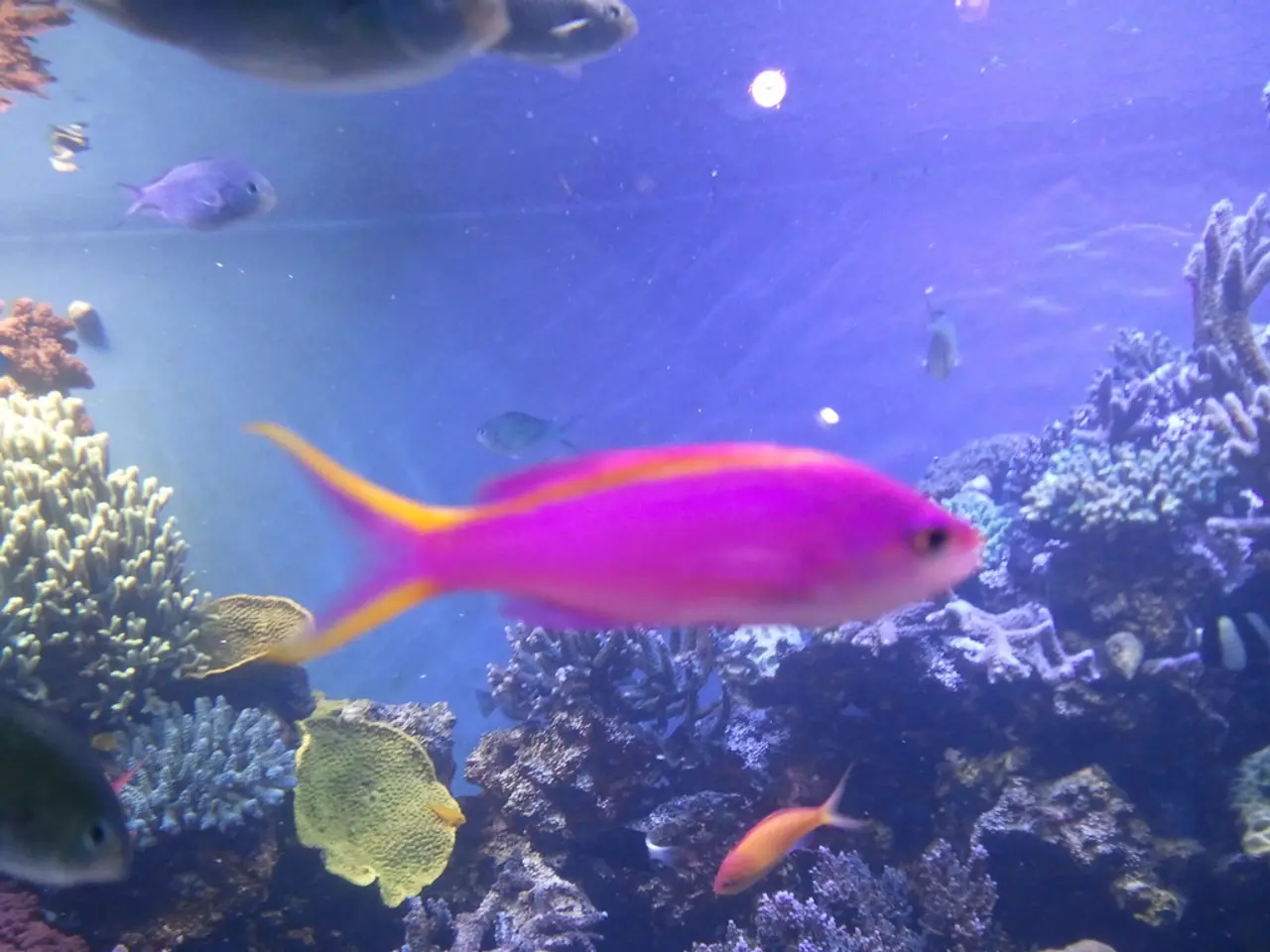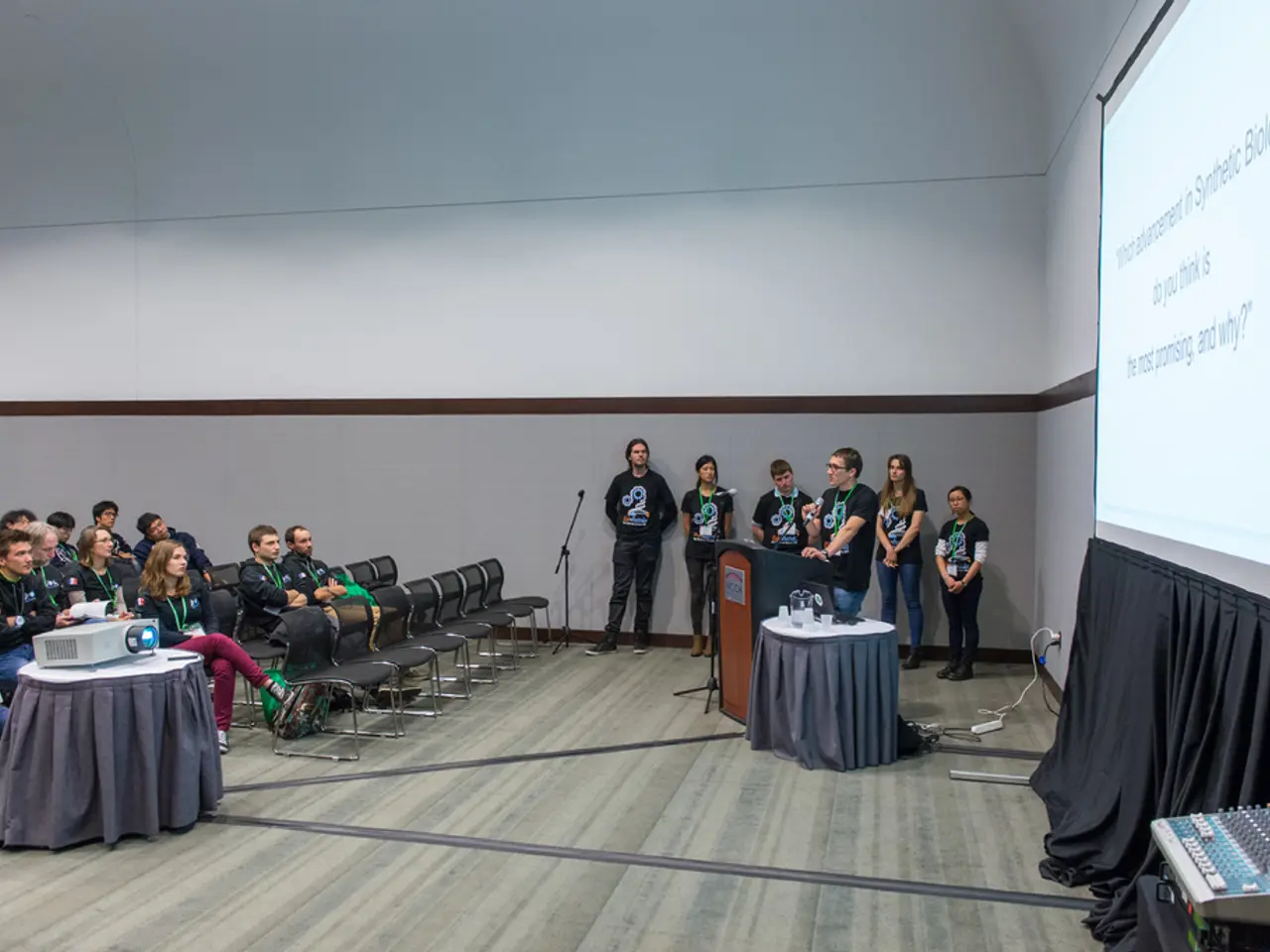Secures Additional Financing for Provectus Algae to Expand Their Seaweed-based Methane Mitigation Technology
Provectus Algae, an Australian company specializing in the cultivation of seaweed, has announced a significant milestone in its mission to combat methane emissions from livestock. The company has raised a $10.1 million Series A round, led by At One Ventures, with participation from Methane Mitigation Ventures, Mort & Co, and Hitachi Ventures.
This funding comes as the Australian government grants Provectus Algae $2.5 million to scale its indoor growing system for the seaweed species Asparagopsis. The company's closed-system automated bioreactor allows for high-density growth of photosynthetic algae, including Asparagopsis, which is known for its ability to tackle methane production in ruminants such as cows and sheep.
Provectus Algae's system can produce Asparagopsis more rapidly than other land-based growing systems while consistently controlling the expression of the bioactives that are crucial for methane reduction. The company has secured a license from Future Feed for the global IP rights to Asparagosis seaweed technology, further bolstering its position in the market.
Currently, Provectus Algae has a 110,000-liter capacity and aims to increase it to about 260,000 liters by September. The company's goal is to further scale production, perform large trials, and supply large quantities of its 'Surf 'n' Turf feed additive' to the market.
The potential for carbon credits is enormous, but there's a need for validation, tracking, measuring, and a bulletproof monitoring and verification process. Provectus Algae has developed technology to stabilize the active compounds in the seaweed and deliver them in a dry, finished powder form that can be easily mixed into feed formulations.
The target is to have 30-50,000 animals a day on Provectus Algae's product by early next year. Charlie Mort, executive chairman of Mort & Co, has partnered with Provectus Algae to conduct trials of their product designed to reduce methane emissions and increase cattle performance.
Methane is produced in ruminants such as cows and sheep in a stomach compartment called the rumen. Approaches to tackling enteric methane production vary, with some feed supplements that interfere with the production of methane in ruminants already commercially available. Other strategies include genomic selection using the rumen metagenome, developing methane-reducing boluses, and improved pasture management through selection of low-methane-emission pastures.
The Australian feedlot beef market alone deals with about 1.2-1.5 million animals a year, indicating enormous scale potential for Provectus Algae's solution. As the world grapples with the challenges of climate change, companies like Provectus Algae are at the forefront of developing technology solutions for livestock methane reduction.
References: 1. Rumin8 Oil Treatment 2. Ruminant BioTech's Bolus 3. AI-driven research in methane reduction 4. Genomic selection for methane reduction 5. Pasture management for methane reduction
- The Australian company, Provectus Algae, specializing in seaweed cultivation, has raised $13.6 million in funding through its Series A round, demonstrating the potential of environmental-science-based businesses in the fight against climate-change.
- The financing, which includes investments from venture capital firms like At One Ventures, Methane Mitigation Ventures, Mort & Co, and Hitachi Ventures, will be utilized to scale the production of Asparagopsis, a seaweed species known for its ability to reduce methane production in ruminants.
- To further bolster its position in the market, Provectus Algae has secured a license from Future Feed for the global IP rights to Asparagosis seaweed technology, enabling the production of a 'Surf 'n' Turf feed additive' with significant potential in personal-finance terms due to the carbon credits that could be generated.
- As the business continues to expand, Provectus Algae intends to leverage data-and-cloud-computing and technology to stabilize active compounds in the seaweed, ensuring efficient delivery and scalable production, a critical factor in attracting investors in the business sector.




